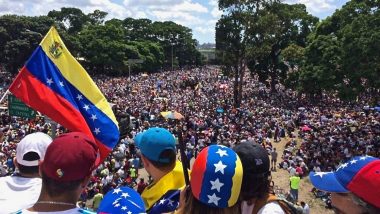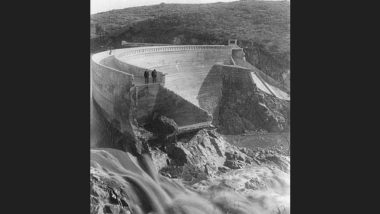The South American country of Venezuela is in an unprecedented economic and political crisis marked by severe food and medicine shortages, soaring crime rates, and an exodus of its people to neighbouring countries like Colombia. The re-election of Nicolas Maduro as the country’s President in elections that have been called ‘neither free nor free’ by international organizations means the crisis in Venezuela could get worse.
According to the Council on Foreign Relations, Venezuela’s crisis ha a lot to do with its dependence on oil. Venezuelan economy is highly vulnerable to external shocks due to its heavy dependence on oil revenues. Oil accounts for about 95 percent of Venezuela’s export earnings and 25 percent of its gross domestic product (GDP).
As global oil prices fell from $111 a barrel in 2014 to a low of $27 per barrel in 2016, Venezuela’s economy went into free fall. By late 2017, revenue had dropped by $100 billion and the country owed some $150 billion to foreign creditors while it held just under $10 billion in reserves.
Today, Venezuela has the highest inflation rate in the world at 800%. Prices in Venezuela rose 4,068 percent in the 12 months to the end of January 2018, according to estimates by the country’s opposition-led National Assembly, broadly in line with independent economists’ figures.
The study showed that 87 percent of people in Venezuela, one of Latin America’s wealthiest nations back in the 1970s, were living in poverty last year, rising from 82 percent in 2016 and 48 percent in 2014.
Heavily dependent on imports, the Venezuelan government must also pay billions every year to service huge liabilities, acquired at very high interest rates, during the oil boom. The Crisis Group says that this year debt servicing is likely to consume around a third of Venezuela’s oil revenues, even if the present price recovery continues. Some economists have argued that it is immoral to pay bondholders while Venezuelans die from malnutrition and preventable diseases. Default – especially a simple cessation of payment, with no restructuring or refinancing deal in place – could leave the country even less able to pay its bills, however. This is not merely because it would further reduce Venezuela’s access to credit, but also because bondholders could attempt to seize its significant oil industry-related overseas assets, potentially paralysing an industry on which the entire economy depends.
But, Venezuela’s crisis is not impacting the country alone as the surrounding region is suffering the consequences of Venezuela’s crisis, from declining trade to a spread of epidemics and an expansion of organised crime. Middle-class professionals are no longer the only ones leaving. Colombia alone has received at least 470,000 Venezuelans, many of them poor, placing welfare services under severe strain, especially in border areas.
With elections that have been condemned by many countries, it is more than likely that Venezuela is likely to receive little help and that means it is going to get worse for Venezuelans.
(The above story first appeared on LatestLY on May 22, 2018 09:36 AM IST. For more news and updates on politics, world, sports, entertainment and lifestyle, log on to our website latestly.com).













 Quickly
Quickly





















